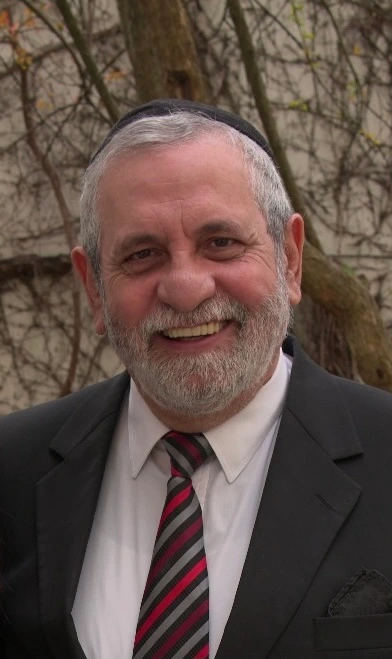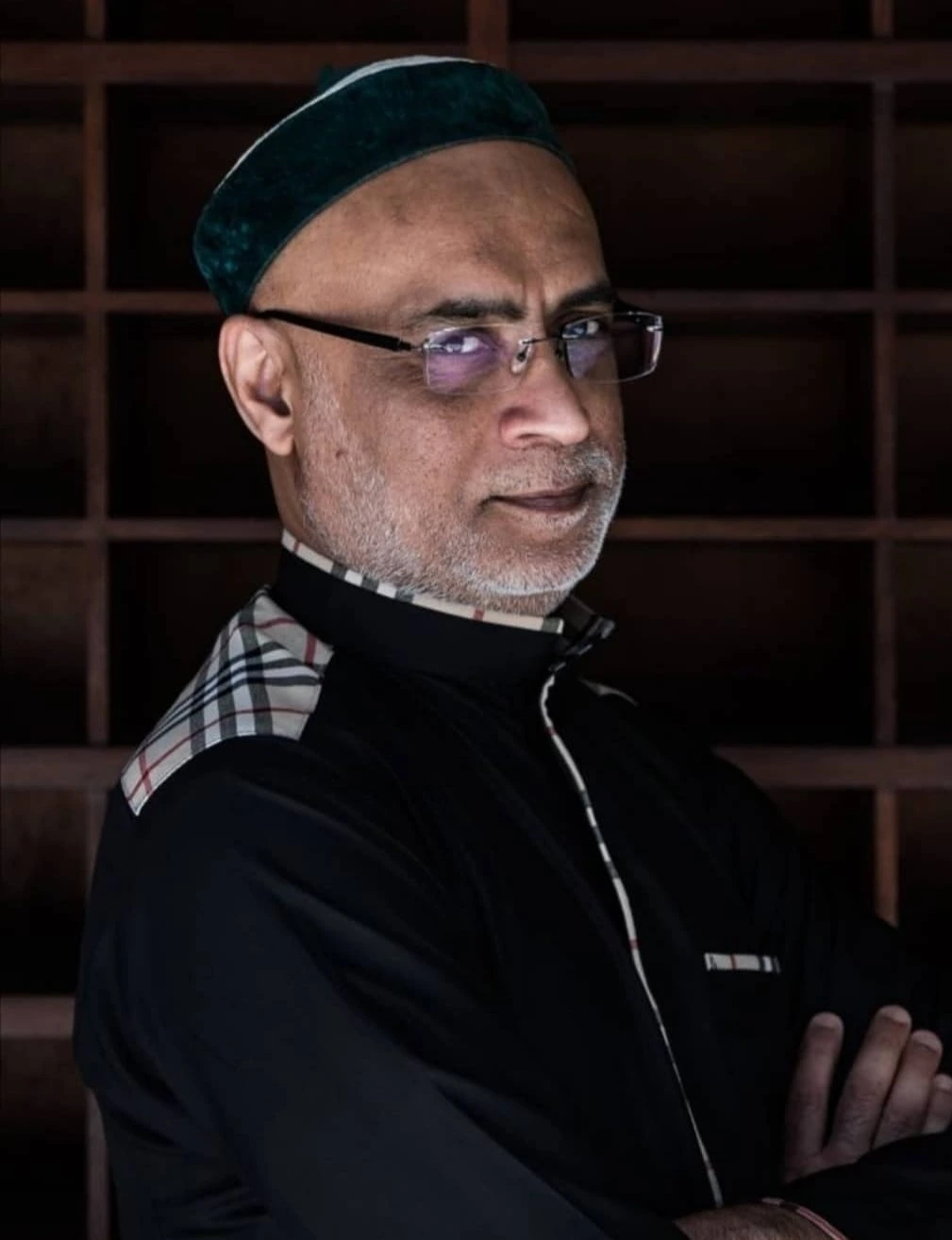At a time when tensions among religions and cultures are simmering all over the globe, from the fight for racial equity that escalated so dramatically in 2020 in the US, with the murder of George Floyd, to tensions in the Middle East, and the escalating border conflict in the State of Israel in May 2021. It is easy to come to the belief that harmony among people of different religions, or cultural identities, is a farfetched utopia.
Yet a look at Portugal, a country renowned for discovery and exploration, shows what can happen when a society sees ‘the Other’ not seen as a threat to be repelled, but rather as a welcome variation on the common themes that unite our shared humanity.
Rabbi Ruben Suiza leads Lisbon’s Jewish community, and Sheikh David Munir is Imam of the Central Mosque of Lisbon. The two leaders shared their perspectives on why Portugal has been so successful in integrating different religious and cultural identities and what leaders of other European states can learn from the country’s pluralistic success.
 Rabbi Ruben Suiza, Rabbi of Lisbon
Rabbi Ruben Suiza, Rabbi of Lisbon
“Portugal certainly has a tremendous tolerance. In fact, the country welcomes the idea of Jews, Muslims, Buddhists and every other religion in the world to live in peace. It is actually the mandate of the Portuguese government that people of different faiths be granted freedom to express their religion without any hindrance,” says Rabbi Suiza.
Imam Munir agrees that Portuguese policymakers are consultative and inclusive when it comes to minority religions. The military engages him as a cultural expert, before they go on missions to Muslim majority countries, and local leaders, recognizing rising anti-Islamic sentiment across Europe, are quick to reach out to offer support to Portugal’s Muslim community. Even the Portuguese President, H.E. Marcelo Rebelo de Sousa, is seen regularly at the Lisbon mosque. In fact, in Ramaan 2021, he broke a fast with the Muslim community, an act by a leading figure in national politics, which would be unheard of in many parts of Europe today.
 Imam David Munir, Imam of the Central Mosque of Lisbon
Imam David Munir, Imam of the Central Mosque of Lisbon
But the interfaith harmony of Muslims and Jews in Portugal, seemingly easily won in a country where these minority groups make up less than 1% of the population, can quickly be lost. Look at the plight of Muslims in other parts of Europe, says Sheikh Munir. From what he terms “religious ghettos” predominantly populated by Muslim migrants, who feel they have been excluded by their host societies. The Imam is also critical of the propensity for some migrant-led institutions in part of Europe, to create parallel societies within their host countries. He cites an example of a conference on the future of Muslims in Europe that was held in Germany, but conducted in Turkish. Such a move, says Imam Munir, is symbolic of some Muslims excluding themselves, rather than being excluded, from the societal mainstream.
A mainstream into which Portugal has managed to integrate both Muslims an Jews. “In Portugal, the Jewish community records several educational programs that are regularly broadcast on the national television channel, to educate the Portuguese public about Judaism and celebrations of the Jewish faith,” says Rabbi Suiza.
Indeed, Portugal is a vibrant model for religious inclusion in action. “Also, government bodies often call on me to give them a background of cultural and faith practices so that when they go to Muslim majority countries, they know how to behave in a way that shows respect to the local culture,” added the Imam.
The Rabbi and the Imam agree that education must be the fulcrum of successful religious pluralism in European society. This education needs to be conducted along three distinct prongs. The first being to tackle what Imam Munir calls “radical Islam”, fostered by predatory religious leaders who exploit the sense of disenfranchisement among, predominantly young, Muslim migrants. “The religious ghettos, like the ones you see now in Germany, France and England, were created by socio-economic disparity. Some religious leaders take advantage of this and say: ‘Come to my mosque. The Europeans don’t care for us (Muslims). They don’t consider us human. That’s why they don’t help us.’ ” This messaging, which Imam Munir calls brainwashing, is particularly attractive to first-generation Muslim citizens of European countries, whose parents were born outside the EU, and who are now seeking a purpose, as well as a community in which to belong.
To counter this, the Imam calls for ongoing support for incoming Muslim migrants to the EU – not just at the port of entry. And also a more robust implementation of integration policies across Europe. “You have to be open in practice, not just in word. In some European countries, they talk about integration, but it is like if you invite me to your house, and when I arrive, you say Come in, but you don’t open the door. What should I do then? Should I jump through the window?” asks the Imam.
Creating dedicated spaces where followers of diverse religions feel welcome to practice their faiths, is the second prong, affirms Rabbi Suiza. Citing the example of Mincha, an afternoon prayer that lasts around 15 minutes, and which Jews need to perform at a set time, before sunset, which could be while at work, or out in public spaces. “If the government, or some other authority, doesn’t understand that I need to perform this specific ritual at this specific time in this specific way, then misunderstandings occur. That is why we need religious education.”
“Once people understand the religious significance of Muslim and Jewish rituals, they will not feel like any of it is an imposition on them,” says the Rabbi. “On the contrary, they will respect it much more because they know the motivation behind it. So if they see a Jew wearing a kippah (a skullcap worn by Orthodox Jewish men), we need to help them understand that we cover our heads because there is a God who is constantly watching us. And if they see a Muslim woman who covers herself to protect her modesty, and maintain the dignity of her body, a body that only her husband can look at, then they won’t be offended by this type of dress,” he adds.
Failure by leaders of minority religions to educate their communities could result in “tremendous anguish to Jewish and Muslim people”, asserts Rabbi Suiza, citing his concerns over growing movements in countries like Belgium, Iceland and the UK to outlaw sacred practices like male circumcision and the ritual slaughter of animals. “We’re not telling someone who’s not commanded to have a circumcision. We’re not saying to anyone who’s not commanded that you must eat kosher or halal meat. We say: Give us the freedom to be able to implement our religious practices for ourselves. We’re not imposing them on you,” says the Rabbi.
The third prong is the need to reframe “the Other”. Since September 11, says Imam Munir, across much of the West, Islam has been perceived through the lens of terrorism. He sees this need for reframing as a collaborative effort to be undertaken jointly between European governments, and Muslims themselves. Clearly there is a need to find the balance between maintaining national security and respecting a Believer’s rights to act in accordance with the tenets of their faith. Much of this comes down to variations in Muslim culture. “You can’t behave like a European Muslim in an Islamic country, or like an Islamic Muslim in a European country”, says Imam Munir. “Also, Islam teaches that love of country is part of your faith. So when young Muslim migrants in Europe reject their European identities, it is actually a rejection of Islamic teachings.”
Europe’s quest for pluralistic harmony will be achieved by striking the right balance between being inclusive of different cultures and beliefs, and upholding the principles of European society. “There should be a desire on the part of those who don’t understand Islam or Judaism to gain the knowledge and understanding required in order for them to come to terms with the realities of what these faith traditions are, and what they aren’t. We do not wish to create antagonistic relationships within European society. We simply want to be able to implement our religious requirements,” says Rabbi Suiza.
“All Muslims in Europe should integrate into European society. And we must open the mosques, across Europe, to everyone,” rallies Imam Munir. “Let’s show them who we are. Let’s create the conditions where people can come to us. Because when they do that, they see that we are just like them. And they are like us.”
As Portugal has demonstrated, true interfaith harmony can only come from understanding one another’s motivations, and protecting the collective space for people to express themselves, whatever their religious background.
By Iris Jumbe